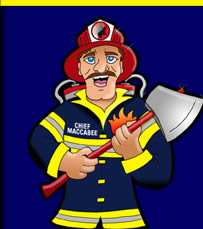| Glossary |
Blech
|
| A stove covering used to prevent one from adjusting the flame on the Sabbath. |
|
Chometz
|
| Leavened bread. The Bible prohibits not only the eating of leavened food during Passover, but even its existence in the Jewish home during the festival. On the eve prior to Passover the house is searched for any leavened bread that may have been missed while cleaning the house for Passover. To aid in the search, ten small pieces of bread are place around the house and are gathered during the search, which is conducted by the light of a candle. The next morning these ten pieces along with any other search findings are burned. |
|
Chanukah
|
| Holiday commemorating the rededication of the Holy Temple and the defeat of the enemy rule. |
|
Havdalah
|
| The ceremony with wine, spices and a candle which bids farewell to the Sabbath and makes a separation between the Sabbath and the week. |
|
Kosher
|
| Laws regulating the Jewish diet. The main regulations include the distinction between permitted and prohibited animals, fish, and fowl; the prohibition against eating blood and the prohibition against mixing meat and milk. |
|
Lag B’omer
|
| During the period of time between the second day of Passover and Shavuoth a measurement of barley called the Omer was brought as an offering to the Temple. In later times, the Jewish people suffered the loss of thousands of scholars during this period. The deaths stopped on the 33rd day of the counting of the omer. This made the 33rd day of the Omer (Lag B’omer) a festive occasion amidst a period of mourning. In addition, Rabbi Shimon Bar Yochai, a prominent Jewish teacher, died on this day. To commemorate his enlightening of the Jewish people, bonfires are lit in his memory. |
|
Matzo
|
| Unleavened bread. Eaten during Passover in commemoration of the hasty Exodus from Egypt when the Israelites had time to prepare only unleavened bread. |
|
Menorah
|
| A candelabra that was lit in the Holy Temple. When the Temple was rededicated, only one jug of pure oil was found. This small quantity miraculously burned for eight days. In commemoration, Jews light a Hanukiah (Hanukah menorah) each of the eight nights of Hanukah. |
|
Passover
|
| Festival that commemorates the deliverance from Egyptian bondage and with it the birth of the Hebrew nation. |
|
Purim
|
| The commemoration of the deliverance of the Jews in Persia from the hands of Haman, the king’s officer who plotted their death. The events are narrated in the Book of Esther. |
|
Rosh Hashanah
|
| The New Year. A time most appropriate for spiritual reflection. |
|
Sabbath
|
| The day of rest. Cessation of work is essential for the observance of the Sabbath. Begins with the lighting of candles on Friday night and concludes on Saturday night. |
|
Shavuot
|
| The festival observed to commemorate the time when the Israelites received the Law on Mount Sinai. This day also marks the beginning of the summer harvest |
|
Simchat Torah
|
| Festival for rejoicing with the Torah. |
|
Sukkah
|
| A temporary structure built outdoors. It is left uncovered from above and then covered with detached branches and other greenery, in such a manner as to allow the stars in the sky to be seen from inside the structure. These booths symbolize the temporary dwellings in which Israel dwelt throughout its momentous journey in the wilderness. Meals are eaten in these booths throughout the festival of Succoth. |
|
Sukkot
|
| Festival which commemorates the wandering of the children of Israel in the wilderness when they dwelt in huts or booths. |
|
Tishre
|
| Month of the Jewish calendar in which the Jewish New Year and other festivals fall out. |
|
Torah
|
| The division of the Bible which includes the Five Books of Moses. |
Yartzeit
|
| Anniversary of a death. A memorial candle is lit in commemoration. |
Yom Kippur
|
| The Day of Atonement. Repentance on this day is brought about by a sincere desire to recognize one’s sins, to confess, to express regret, and to be prepared to abandon the path of wrongdoing. |
|
|
| *Portions adapted from: Pearl, C. & Brooks, R. (1975) A Guide to Jewish Knowledge (4th ed.). London: Jewish Chronicle Publications. |
| [BACK TO TOP] |
